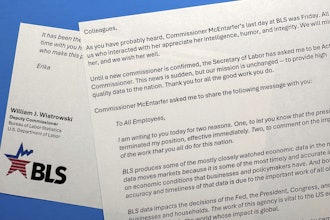AmazonSupply has been merged into the Amazon Business site much faster than many experts had predicted. Originally there was speculation that the newly-combined business operations would be completed at the end of this year but Amazon completed the project in just a few weeks.
The Amazon Business site now boasts that it has “hundreds of millions of products” available for businesses and offers free shipping on orders of $49 or more. In addition, the Amazon Business site offers business pricing on select items, multi-issuer accounts for registered businesses and approval workflows that will offer control over what products each user within a company can purchase. Customers will also have the ability to compare prices on products on a single page as well as noting the site will contain 100 times more product than existed on AmazonSupply.
Webinar: Transitioning Your Distribution Business to an Online World
SpendMatters.com, an excellent on-line procurement site, points out that more than two million sellers will be represented on Amazon Business.
Pierre Mitchell and Jason Busch write, in an article posted on the site, that the large number of sellers is due to the fact that the marketplace features Fulfillment by Amazon (it sells beyond what Amazon has taken title to in its own warehouses even though it may store the merchants’ goods in the warehouse for a fee, which brings additional value to sellers in terms of shipments offers they can make to customer.)
We know several distributors that are taking advantage of this program, some of whom sell their C and D items this way.
The site also makes it easier for buyers to get specific product information and prospective customers can get product information by “Asking an Expert.”
The decision by Amazon concludes speculation from many within the distribution industry as to how committed Amazon was to the business marketplace. There were some who had predicted that Amazon would walk away from AmazonSupply, just as Google did when it dropped its “Google for Business” venture after only several months.
So how successful was AmazonSupply?
In one way, AmazonSupply helped Amazon determine the viability of the industrial marketplace and its potential for future sales growth. Traffic on the site was reportedly slow and sales were not as strong as Amazon expected. Yet business sales on Amazon itself were very good. In fact, TechCrunch.com, a leading on-line news site covering the technology industry, noted that Amazon recorded $800 million to $1 billion in B2B sales last year.
AmazonSupply was an outgrowth of Small Parts, a B2B company that Amazon bought ten years. From the knowledge it gained from Small Parts, AmazonSupply was born. Despite the fact that AmazonSupply launched three years ago, it was still in a beta testing mode when it closed. But Amazon was also running a similar site, Amazon Business, which created a problem for employees.
TechCrunch summed it up this way. “Running the two sites in parallel, however, has become “a nightmare,” one source told the web site, adding B2B teams were spending “endless hours” deploying features across both platforms. In addition, “the traffic and sales on AmazonSupply have not been that great.
“The site never really took off, having neither enough features nor enough selection,” a source said. “But at the same time, orders of commercial and industrial products from B2B customers kept growing on Amazon itself, and in 2014 totaled somewhere between $800 million and $1 billion. Amazon Business, meanwhile, was developing a lot of features that both business customers and suppliers wanted to see, such as credit lines, purchase delegation, sales tax exemption, and centralized billing and invoices.”
Many distributors said AmazonSupply offered little competition to their businesses. Last year I gave several presentations to various trade groups and most attendees said that AmazonSupply wasn’t even on their radar screens.
Will that now change?
What is certain is that more buyers, have been and will continue to search for products on line.
Every major buying study notes that business buyers are increasingly relying on the Internet to research and buy products. Some of those reports indicate that growth could be 15 to 20 percent this year.
There is little doubt that distributors, to be successful in the future are going to be playing up their advantages over companies such as Amazon and possibly others like Alibaba. That means providing even more technical assistance and knowledge to products for customers, something that Amazon cannot do.
But it also means that distributors must have some type of online presence to provide customers with information, content and product information through videos, chat functionality, and ordering.
Distribution is changing rapidly and your company can no longer afford to do “business as usual” as more competitors enter the industrial marketplace. What worked yesterday may not work tomorrow.






















